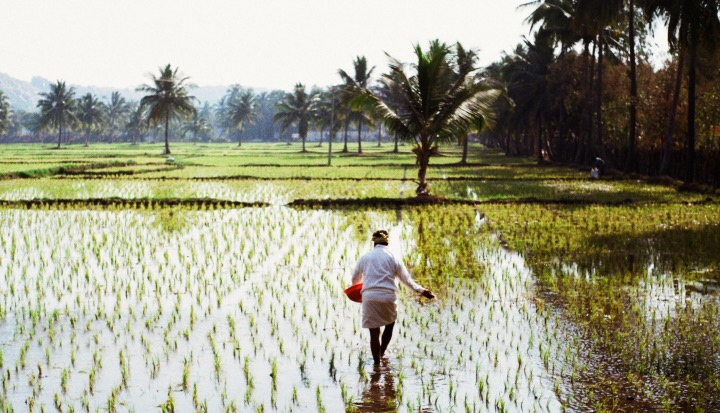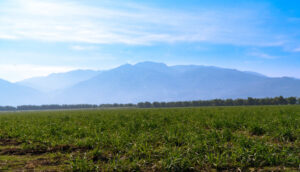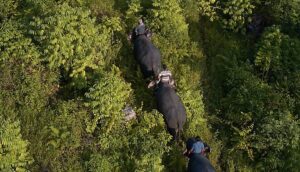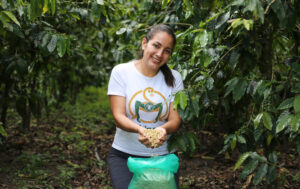More than 500 million smallholders form the backbone of global food systems, particularly in rural areas of developing countries. Here, agriculture is often the main source of employment and economic activity. With these regions also facing the brunt of climate impacts, investing in climate resilience is not just urgent—it is vital to sustain livelihoods, reduce poverty, and combat environmental injustice. Research finds that the agrifood sector represents one of the lowest-cost opportunities to cut global emissions, especially in middle income countries and sectors of rice and livestock*. As countries shape climate strategies, they must prioritize “climate-smart” agriculture, leveraging nationally determined contributions and global partnerships. But how can they drive this transformation, especially in resource-scarce settings? This should be a critical point of reflection to be discussed at COP 29.
To design and deliver climate resilience and climate justice properly, market systems development (MSD) offers a promising model. This approach focuses on creating sustainable and scalable change by strengthening the relationships among all actors within a market system —farmers, input suppliers, processors, financial institutions, and policymakers. By enhancing the entire system, rather than providing isolated support, market systems approaches can generate long-term impact and foster self-sustaining climate resilience. The MSD approach is particularly important in today’s rapidly changing world, where more cost-effective and adaptive approaches are needed to account for shifting political priorities and rapid shocks and stressors. At the same time, business engagement in sustainability and public private sector partnerships is growing, witnessed by fora such as Business Fights Poverty and We Mean Business, and this provides new opportunities for engagement in the market systems approach.
The AV Group are leaders in designing and implementing a market systems approach to prioritizing both green sectors and greener growth practices, resulting in agriculture sector growth and climate resilience. The AV Group is composed of ACDI/VOCA and its affiliates Tanager, Fundación ACDI/VOCA, and AV Ventures.
One example of market systems development is in Honduras, where ACDI / VOCA implements projects with USAID and the government of Honduras. Here, one area of focus is bio-inputs, which includes organic fertilizers, soil amendments, and natural pest control products: we know that these technologies support productivity, soil health, and can even reduce greenhouse gas emissions, but they are costly for many farmers. To address this challenge, the project looks at the system of market actors that already work in these supply chains and grows the existing entrepreneurs and service providers by facilitating linkages, technical assistance, and access to finance. The project supports soil testing laboratories to grow their service offer and reach more farmers. By taking this system approach, the impact is great than if it were simply supporting manufacturing of organic fertilizer: in the past year, with an approximate annual program budget of just $1.5 million, the project supported more than 50 companies, who generated $10 million in new sales, invested $4 million of their own money, and reached approximately 95,000 hectares of farmland. Moreover, use of bio-inputs and other sustainability practices is found to reduce GHG footprints by half in crops such as coffee**.
In India, AV Group member Tanager implements a mint oil sustainable sourcing project with Mars. This project applies a market systems approach and leverages the investment of the private sector for sustainability and business growth. In this mint oil supply chain, farmer-owned producer companies sell inputs such as planting material to affiliated farmers; after production, these companies then purchase and aggregate mint oil to sell into the Mars Wrigley supply chain. Identifying a weakness in the planting material, Tanager engages with the India Central Institute for Medicinal and Aromatic Plants to obtain improve plant stock, which is then sold to a network of “multiplier” farmers to propagate widely. These “multipliers” then sell the mint plants to the farmer producer companies, who then pass it on to their members. Tanager also maintains a research and development arm that advises farmers on soil and crop inputs to minimize irrigation and reduce the cost of production. After 7 years of implementation, the work has supported nearly 26,000 smallholders to increase their yield of mint oil by 20%, and doubling incomes from mint as compared to the baseline, thanks in part to lower cost of production from water irrigation. In the coming years the project is looking to monitor water use and carbon footprint to understand its contribution to climate mitigation and resilience.
Beyond agriculture, MSD approaches are being applied in sectors like textiles, tourism, and information technology, all of which intersect with climate resilience goals. However, proving the effectiveness of these approaches requires more robust evidence and partnerships with the research community. Unlike traditional, discrete interventions such as cash transfers, market systems approaches are large-scale, adaptive, and variable. Building a strong foundation of data and evidence will be crucial to scaling these solutions and securing support from global stakeholders.
Innovative market systems approaches are changing the landscape of economic development, agriculture, and climate justice, and are advanced with platforms such as the USAID Market Systems Partnership activity and the MSD Hub. Current experiences demonstrate how empowering smallholders, building robust market linkages, and prioritizing sustainability can create lasting impact. To achieve climate justice, the global community must support these systems-based solutions, driving equitable, resilient growth in agriculture.
*“Sutton, William R.; Lotsch, Alexander; Prasann, Ashesh. 2024. Recipe for a Livable Planet: Achieving Net Zero Emissions in the Agrifood System. Agriculture and Food Series. © Washington, DC: World Bank.









